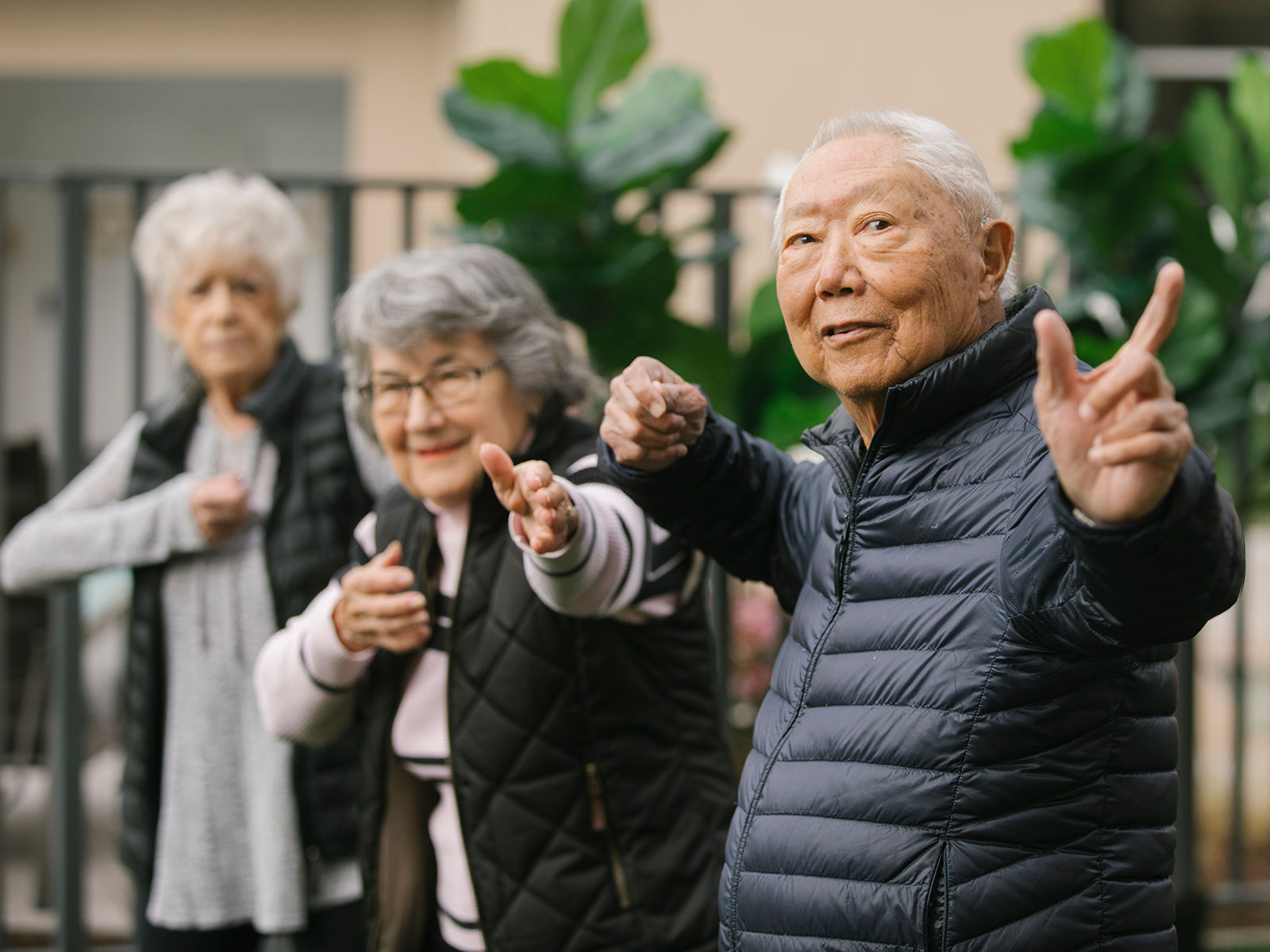One of the challenges many people face as they get older is maintaining an active lifestyle. But getting older doesn’t mean there’s a lack of opportunities to continue moving and growing.
In many Asian cultures, a variety of traditional practices such as yoga and tai chi have been used to promote longevity and overall well-being – no matter a person’s age. Whether you want to focus on mental wellness, improve flexibility or enhance balance, there’s a tried-and-true, centuries-old activity for everyone.
Meditation
Serving as an integral part of many Asian traditions, meditation is a powerful practice that promotes mental clarity, emotional balance and stress reduction. It involves techniques such as mindfulness, deep breathing and visualization, which encourage a state of relaxation and awareness.
For older adults, meditation can help manage symptoms of depression, improve sleep quality and enhance overall mental health. Research has also shown that regular meditation can lead to health benefits such as lower blood pressure, immune system support and reduced inflammation.
Yoga
An ancient practice with roots in India, yoga has become popular thanks to its holistic approach to wellness. Combining physical postures, breath control and meditation, yoga can be particularly beneficial for older adults – helping maintain joint health, enhance balance and relieve chronic conditions such as arthritis and lower back pain.
Incorporating yoga into your daily routine can help improve mobility and prevent stiffness. The postures, ranging from gentle stretches to more active poses, help increase flexibility and strength in both the muscles and the joints. Yoga also emphasizes deep breathing, which can improve lung capacity and reduce stress.
There are many styles of yoga, and some are specifically designed for older adults, such as chair yoga, which allows individuals with limited mobility to benefit from the practice.
Tai chi
Widely recognized for its gentle, flowing movements and numerous benefits for older adults, tai chi is a Chinese martial art that’s often described as “meditation in motion.” By combining slow, deliberate movements with deep breathing, tai chi promotes relaxation and strength – and is an exercise that helps improve flexibility, balance and coordination.
One of the most appealing aspects of tai chi for older adults is that it’s a low-impact exercise, making it an ideal fitness opportunity for those with joint issues or chronic conditions. The slow pace makes it easier to focus on body alignment, posture and breathing, which can reduce stress and alleviate physical tension.
Tai chi also encourages mindfulness, which can foster a sense of calm and emotional well-being. Older adults who practice tai chi regularly experience increased energy levels, improved mood and enhanced quality of life, making it a common exercise program offered at assisted living communities.
Qigong
A Chinese practice that’s similar to tai chi, qigong uses simple, flowing movements, controlled breathing and mental focus to help harmonize the body’s energy. The gentle exercises are designed to strengthen internal systems, improve circulation and release blockages in energy pathways.
Qigong is a highly adaptable practice, with movements that can be modified for individuals with mobility issues or chronic health conditions. Qigong also encourages relaxation and mental clarity, which can help reduce anxiety, depression and stress.
Find the best exercise practice for your lifestyle
Traditional Asian practices such as meditation, yoga, tai chi and qigong not only improve physical health by enhancing flexibility, balance and strength, but also support mental wellness by reducing stress and improving cognitive function. By incorporating any of these techniques into your daily routine, you can experience a greater sense of emotional balance and overall well-being.
Join us to discover the beauty and diversity of Asia
We’re exploring more than just traditional practices at our next Social Series event, Majesty of Asia.
Join us on Thursday, May 22, to learn more about the history, culture, cuisine and traditions of Asia.

You might also like
Want to learn more about life at Atria Senior Living?


